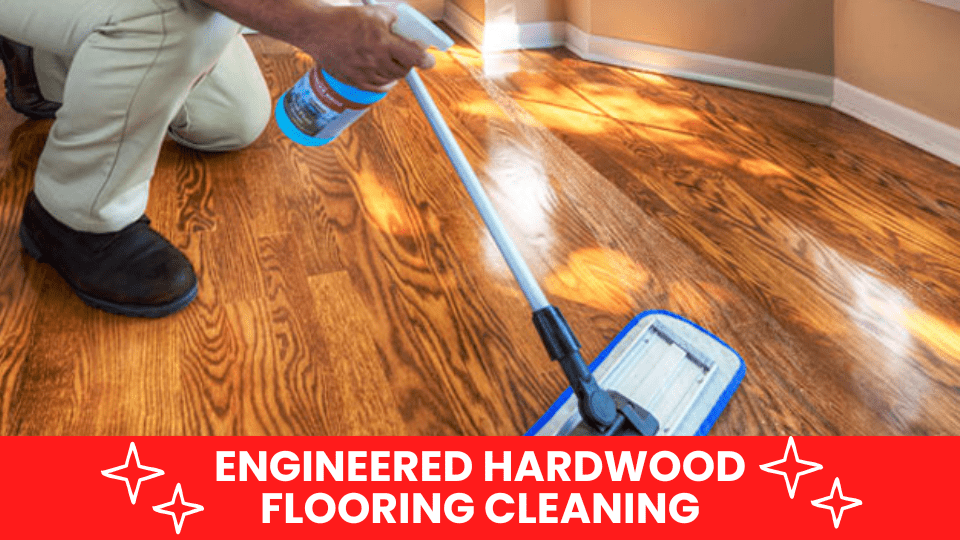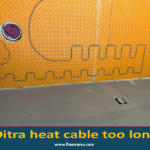Best Engineered Hardwood Flooring Cleaning, use soft, non-abrasive applicators like microfiber cloths or mops. Avoid rough or abrasive tools that can scratch the surface.
Engineered hardwood floors should be cleaned gently with appropriate cleaning products to maintain their quality and appearance. Proper maintenance of engineered hardwood flooring is essential to preserve its longevity and aesthetics. By following the correct cleaning techniques and using suitable tools, you can ensure that your floors remain in top condition for years to come.
In this blog post, we will explore the best practices for cleaning engineered hardwood flooring to help you keep your home looking beautiful and well-maintained. Let’s delve into engineered hardwood floor cleaning and discover the tips and tricks for achieving spotless and gleaming floors.

Best Engineered Hardwood Flooring Cleaning
When it comes to cleaning engineered hardwood flooring, having the right tools and products is essential to maintaining its beauty and durability. Here are the recommended cleaning tools and safe cleaning products to keep your engineered hardwood floors looking their best.
Recommended Cleaning Tools
When it comes to cleaning engineered hardwood floors, using the right tools is crucial to avoid causing any damage. Here are the recommended cleaning tools for engineered hardwood floors:
- Soft Bristle Broom: Use a soft bristle broom to sweep dust, dirt, and debris from the floor’s surface regularly.
- Microfiber Mop: A microfiber mop is gentle on engineered hardwood floors and removes any remaining dirt or grime.
- Vacuum Cleaner with Soft Brush Attachment: Use a vacuum cleaner with a soft brush attachment to remove dirt from hard-to-reach areas and along the edges of the flooring.
Safe Cleaning Products
Using safe and suitable cleaning products is crucial to prevent damage to your engineered hardwood floors. Here are some safe cleaning products recommended for maintaining your engineered hardwood flooring:
- Bona Hardwood Floor Cleaner: This pH-balanced, non-toxic cleaner is specifically designed for use on engineered hardwood floors and effectively removes dirt and grime without leaving any residue.
- Vinegar and Water Solution: Mix vinegar and water in a 1:10 ratio to create a gentle, homemade cleaner for engineered hardwood floors.
- Commercial Wood Floor Cleaner: Choose a commercial wood floor cleaner that is specifically formulated for use on engineered hardwood floors and follow the manufacturer’s instructions for safe and effective cleaning.
Best Practices For Cleaning Engineered Hardwood Floors
When it comes to maintaining the beauty and longevity of your engineered hardwood floors, employing the best cleaning practices is essential. Proper care keeps the floors looking stunning and ensures they remain in top condition for years to come. Below, we outline the best methods for cleaning engineered hardwood floors to help you preserve their natural charm and durability.
Proper Cleaning Techniques
One of the best practices for cleaning engineered hardwood floors is to use soft, non-abrasive applicators such as microfiber cloths or mops. These gentle tools effectively clean the floors without causing any damage or scratches. Additionally, it’s important to minimize moisture during the cleaning process. By using the sprayer function sparingly and pressing down firmly on the mop, you can effectively remove grime and dirt without excessive moisture.
Avoiding Damaging Practices
It’s crucial to avoid certain practices that can harm engineered hardwood floors. For instance, rough or abrasive applicators like steel wool or rough sponges should be completely avoided as they can scratch and damage the surface of the floors. Furthermore, steam mops should not be used on engineered hardwood floors as the moisture can seep between the layers, weakening the bond and causing permanent damage.
Common Mistakes To Avoid
When cleaning engineered hardwood flooring, it’s important to be mindful of certain common mistakes that can potentially damage the floors. By avoiding these pitfalls, you can maintain the beauty and longevity of your engineered hardwood flooring for years to come.
Professional Bona Hardwood Floor Cleaner
Avoiding Harsh Chemicals
Using harsh chemicals on engineered hardwood flooring can lead to discoloration and damage. It’s crucial to steer clear of ammonia-based cleaners, vinegar, and abrasive solvents. These chemicals can strip away the protective finish and cause irreversible harm to the flooring.
Preventing Water Damage
Water damage is one of the most detrimental issues for engineered hardwood flooring. Excessive moisture can cause warping and swelling and ultimately ruin the floor. Avoid using steam mops or excessively wet mopping techniques, and ensure any spills are promptly cleaned up to prevent water seepage into the floorboards.
Specialized Cleaning Techniques
Specialized cleaning techniques are essential for maintaining the beauty and longevity of engineered hardwood flooring. By employing the right methods, you can effectively remove dirt, grime, and stains without causing any damage to the floor’s surface.
Deep Cleaning Methods
Deep-engineered hardwood flooring cleaning removes embedded dirt and grime that regular cleaning may not address. Here are some specialized deep-cleaning methods:
- Use a specialized hardwood floor cleaner to thoroughly clean the floors without leaving residue.
- Consider professional hardwood floor cleaning services for a deep, thorough cleaning.
- Regularly vacuum with a soft brush attachment to remove dirt from crevices and corners.
Stain Removal Tips
Engineered hardwood floors may occasionally encounter stains that require specialized cleaning techniques. Here are some effective stain-removal tips:
- Act promptly to clean up spills to prevent staining.
- Use a damp microfiber cloth to blot and lift the stain gently.
- Apply a specialized hardwood floor stain remover following the manufacturer’s instructions.
Frequently Asked Questions
What Do You Clean Engineered Hardwood Floors With?
Clean engineered hardwood floors with soft, non-abrasive applicators like microfiber cloths or mops to prevent damage. Avoid rough or abrasive tools that can scratch the surface. Use gentle cleaning techniques to maintain the floors’ quality and appearance.
Is Bona Floor Cleaner Safe For Engineered Wood?
Yes, Bona floor cleaner is safe for engineered wood floors. It is recommended for use on all unwaxed, unoiled, polyurethane-finished wood floors. Avoid using rough or abrasive applicators; instead, use soft, non-abrasive applicators like microfiber cloths or mops to gently clean the floors without causing damage.
Do not use steam mops or saturate the floor with excess water.
Is It Ok To Steam Clean Engineered Hardwood Floors?
Steam cleaning engineered hardwood floors is not recommended as it can damage the adhesive and weaken the floor. Stick to gentle cleaning methods using soft, non-abrasive applicators like microfiber cloths or mops. Avoid steam mops to preserve the quality and longevity of your engineered hardwood floors.
Can You Clean Engineered Hardwood With Soap And Water?
Yes, you can clean engineered hardwood with soap and water. Use a damp mop sparingly to avoid excessive moisture.
How Do You Clean Engineered Hardwood Floors?
Avoid abrasive applicators to clean engineered hardwood floors, and use soft, non-abrasive tools like microfiber cloths or mops.
Is Bona Floor Cleaner Safe For Engineered Wood?
Yes, Bona Hardwood Floor Cleaner is safe for engineered hardwood floors with unwaxed, unoiled, polyurethane finishes.
Conclusion
Cleaning engineered hardwood floors requires gentle care to avoid scratches and damage. Use soft, non-abrasive tools like microfiber cloths and avoid harsh applicators. Remember, Bona Hardwood Floor Cleaner is safe for engineered wood, but avoid steam cleaning. Please keep it simple with water and gentle methods.


